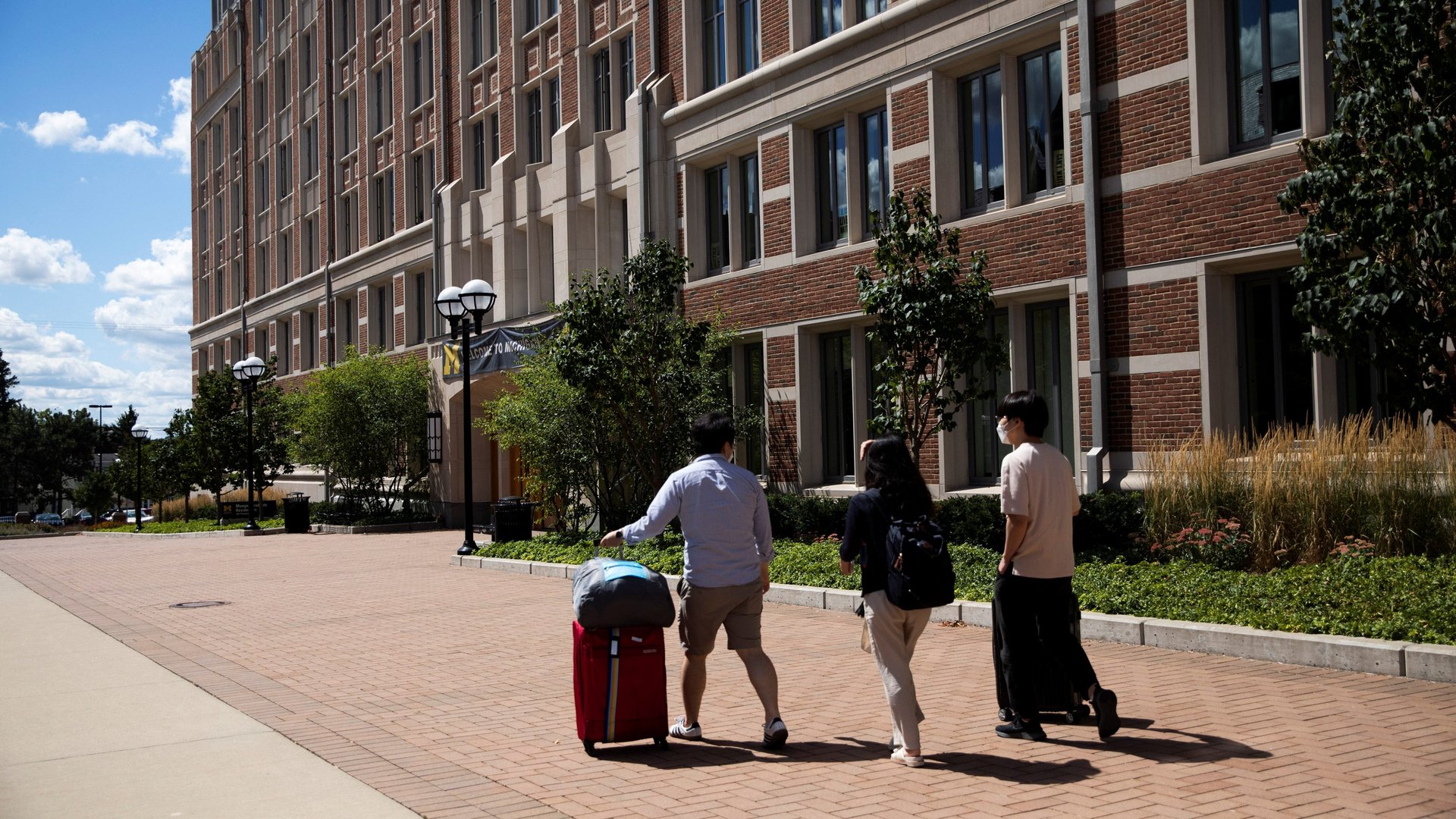Blackstone is capitalizing on the shortage in US student housing
Blackstone, the $84 billion private equity giant and corporate landlord, just made its biggest investment yet in student housing with its $13 billion acquisition of American Campus Communities. The deal, first reported by the Wall Street Journal on Tuesday (April 19), means the largest publicly-traded student housing developer in the US is now part of a real estate empire that has made a name for itself by nabbing high-demand real estate (warehouses, single-family rentals) around the country then increasing profits by raising rents or sometimes reducing building services.


Blackstone, the $84 billion private equity giant and corporate landlord, just made its biggest investment yet in student housing with its $13 billion acquisition of American Campus Communities. The deal, first reported by the Wall Street Journal on Tuesday (April 19), means the largest publicly-traded student housing developer in the US is now part of a real estate empire that has made a name for itself by nabbing high-demand real estate (warehouses, single-family rentals) around the country then increasing profits by raising rents or sometimes reducing building services.
For Blackstone, which already has thousands of units of student housing, worth more than $7 billion in its portfolio, the deal is an opportunity to double down on an area of real estate where shortages are particularly acute. For millions of university students looking for housing close to campus, it could create more housing options amid a critical shortage, but perhaps at the price of higher rents.
Why student housing appeals to corporate investors
American Campus Communities owns 166 properties located on and around 71 large university campuses across the US, including the University of Arizona and Butler University. They build and manage housing complexes designed specifically for students, that typically come pre-furnished, and can be rented on a per-person, per-term basis, instead of a typical apartment lease.
Student housing is seen as “recession proof” within the industry because demand has historically grown along with rising university enrollment. Although remote learning upended this model, university enrollment is expected to increase over the next decade as students return to campuses.
Yet, as with much of the real estate sector, new student housing construction has not kept pace with demand. Between 2016 and 2018, American universities added fewer than 20,000 new university-owned beds (pdf) per year, down from roughly 60,000 new beds in 2001, according to the National Multifamily Housing Coalition. This has strengthened the market for private student housing while creating a dire situation for students with few options around universities.
A shortage in student housing
The student housing crisis has gotten so bad that many students have found themselves effectively homeless. Most famously, students at different University of California campuses have found themselves regularly sleeping in cars, crashing with friends, and overcrowding into apartments and homes. According to a 2020 report from UCLA, 1 in 20 University of California students experienced homelessness. For community college students, the number was 1 in 5. The University of California was recently ordered to pause enrollment until it can increase its on-campus housing.
As universities struggle to get the up-front funding and regulatory approval to build more new housing on their own, private developers are taking the opportunity to step in. ACC has made a name for itself developing student housing for large campuses that have seen growth in enrollment in the last 20 years (they only work with places with a minimum of 15,000 students).
Now with Blackstone’s backing, the company plans to keep expanding. In a statement announcing the news, ACC CEO Bill Bayless called the acquisition a chance to “grow our core business and pursue additional innovative opportunities.” The company hasn’t made announcements yet on exactly where it will undertake new developments, but a Blackstone executive who oversees real estate acquisitions in the Americas acknowledged the need for new student housing and suggested the $84 billion company would finance it. “Our perpetual capital will enable ACC to invest in its existing assets and create much-needed new housing in university markets,” the company said in a statement after the acquisition.